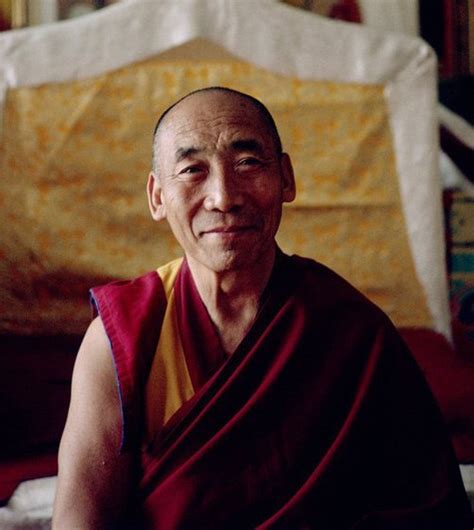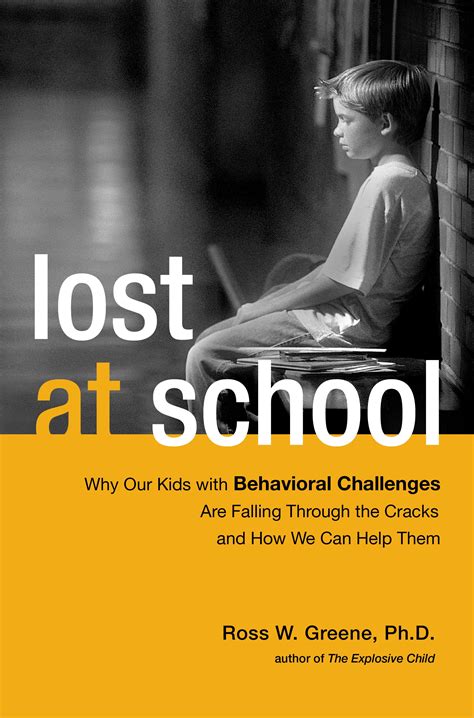Top 1136 Attachment Parenting Quotes & Sayings - Page 19
Explore popular Attachment Parenting quotes.
Last updated on April 17, 2025.
Fiction is like a spider's web, attached ever so lightly perhaps, but still attached to life at all four corners. Often the attachment is scarcely perceptible; Shakespeare's plays, for instance, seem to hang there complete by themselves. But when the web is pulled askew, hooked up at the edge, torn in the middle, one remembers that these webs are not spun in midair by incorporeal creatures, but are the work of suffering human beings, and are attached to the grossly material things, like health and money and the houses we live in.
Leadership is the great challenge of the 21st century in science, politics, education, and industry. But the greatest challenge in leadership is parenting. We need to do more than just get our enterprises ready for the challenges of the twenty-first century. We also need to get our children ready for the challenges of the 21st century.
I remember how people would often come to see my master Jamyang Khyentse simply to ask for his guidance for the moment of death. He was so loved and revered throughout Tibet, especially in the eastern province of Kham, that some would travel for months on end to meet him and get his blessing just once before they died. All my masters would give this as their advice, for this is the essence of what is needed as you come to die: "Be free of attachment and aversion. Keep your mind pure. And unite your mind with Buddha."
I will not deny that my heart has long occupied itself with the most tender feelings for another. So strong were these impulses that I indulged myself by thinking that if I could not have him whom I admired whom I will admit it now when I would not before I loved then I would never want another. However those are sentiments best saved for one of Lily's romances. The heart is a far more practical thing and in its life is happily capable of more than a single attachment.
One of the great things about being a grandparent is you get to redo what you didn't or couldn't do as a parent. Oftentimes we forget that even while the parent is parenting, they're still a growing person. They're still trying to fix themselves. They're still out there not doing everything a hundred percent correctly. I had the best parents I could ever have, but the kinds of things that they were capable of doing, the things that they said and did, were very destructive to my sister, brother, and me. But they're so much more than those things.
Realisation of love can never come so long as there is the least desire in the heart, or what Shri Ramakrishna used to say, attachment for Kâma-Kânchana (sense-pleasure and wealth). In the perfect realisation of love, even the consciousness of one's own body does not exist. Also, the supreme Jnana is to realise the oneness everywhere, to see one's own self as the Self in everything. That too cannot come so long as there is the least consciousness of the ego (Aham).
There are friends with whom we share neither interests nor any particular experiences, friends with whom we never correspond, whom we seldom meet and then only by chance, but whose existence nonetheless has for us a special if uncanny meaning. For me the Eiffel Tower is just such a friend, and not merely because it happens to be the symbol of a city, for Paris leaves me neither hot nor cold. I first became aware of this attachment of mine when reading in the paper about plans for its demolition, the mere thought of which filled me with alarm.
Rather than accepting the drifting separation of the generations, we might begin to define a more complex and interesting set of life stages and parenting passages, each emphasizing the connections to the generations ahead and behind. As I grow older, for example, I might first see my role as a parent in need of older, mentoring parents, and then become a mentoring parent myself. When I become a grandparent, I might expect to seek out older mentoring grandparents, and then later become a mentoring grandparent.
The best parenting advice I ever got was from a labor nurse who told me the following: 1. After your baby gets here, the dog will just be a dog. 2. The terrible twos last through age three. 3. Never ask your child an open-ended question, such as "Do you want to go to bed now?" You won't want to hear the answer, believe me. "Do you want me to carry you upstairs, or do you want to walk upstairs to go to bed?" That way, you get the outcome you want and they feel empowered.
If we want to understand the actions of a man in the early 1860's, put yourself back there in his shoes. As a young man he began piloting steamboats on the Mississippi, a job he loved and wanted to do the rest of his life, he said. The Civil War ended traffic on the River and his job. He wrote about it in A History of A Campaign That Failed. He said: "I joined the Confederacy, served for two weeks, deserted, and the Confederacy fell." His attachment to the Southern ideal of slavery does not appear very sturdy.
Are we not all of us fanatics? I say only what you of the U.S.A. pretend you do not know. Attachments are of great seriousness. Choose your attachments carefully. Choose your temple of fanaticism with great care. What you wish to sing of as tragic love is an attachment not carefully chosen. Die for one person? This is a craziness. Persons change, leave, die, become ill. They leave, lie, go mad, have sickness, betray you, die. Your nation outlives you. A cause outlives you.
And we should forget, day by day, what we have done; this is true non-attachment. And we should do something new. To do something new, of course we must know our past, and this is alright. But we should not keep holding onto anything we have done; we should only reflect on it. And we must have some idea of what we should do in the future. But the future is the future, the past is the past; now we should work on something new.
If gratitude and esteem are good foundations of affection, Elizabeth's change of sentiment will be neither improbable nor faulty. But if otherwise--if regard springing from such sources is unreasonable or unnatural, in comparison of what is so often described as arising on a first interview with its object, and even before two words have been exchanged, nothing can be said in her defence, except that she had given somewhat of a trial to the latter method in her partiality for Wickham, and that its ill success might, perhaps, authorise her to seek the other less interesting mode of attachment.
A zeal for different opinions concerning religion, concerning government, and many other points, as well of speculation as of practice; an attachment to different leaders ambitiously contending for pre-eminence and power; or to persons of other descriptions whose fortunes have been interesting to the human passions, have, in turn, divided mankind into parties, inflamed them with mutual animosity, and rendered them much more disposed to vex and oppress each other than to co-operate for their common good.
We judge people in areas where we’re vulnerable to shame, especially picking folks who are doing worse than we’re doing. If I feel good about my parenting, I have no interest in judging other people’s choices. If I feel good about my body, I don’t go around making fun of other people’s weight or appearance. We’re hard on each other because we’re using each other as a launching pad out of our own perceived deficiency.
Consciousness will always be present, though a particular
consciousness may cease. For example, the particular tactile
consciousness that is present within this human body will cease when
the body comes to an end. Likewise, consciousnesses that are
influenced by ignorance, by anger or by attachment, these too will
cease. But the basic, ultimate, innermost subtle consciousness will
always remain. It has no beginning, and it will have not end.
When your fight has purpose - to free you from something, to interfere on the behalf of an innocent - it has a hope of finality. When the fight is about unraveling - when it is about your name, the places to which your blood is anchored, the attachment of your name to some landmark or event - there is nothing but hate, and the long, slow progression of people who feed on it and are fed it, meticulously, by the ones who come before them. Then the fight is endless, and comes in waves and waves, but always retains its capacity to surprise those who hope against it.
I can easily believe it. Women of that class have great opportunities, and if they are intelligent may be well worth listening to. Such varieites of human nature as they are in the habit of witnessing! And it is not merely in its follies, that they are read; for they see it occasionally under every circumstance that can be most interesting or affecting. What instances must pass before them of ardent, disinterested, self-denying attachment, of heroism, fortitude, patience, resignation-- of all the sacrifices that ennoble us most. A sick chamber may often furnish the worth of volumes.
She tried to be calm, and leave things to take their course; and tried to dwell much on this argument of rational dependence – “Surely, if there be constant attachment on each side, our hearts must understand each other ere long. We are not boy and girl, to be captiously irritable, misled by every moment’s inadvertence, and wantonly playing with our own happiness.” And yet, a few minutes afterwards, she felt as if their being in company with each other, under their present circumstances, could only be exposing them to inadvertencies and misconstructions of the most mischievous kind.
Yet I was a fool to fancy for a moment that she valued Edgar Linton's attachment more than mine -- If he love with all the powers of his puny being, he couldn't love as much in eighty years, as I could in a day. And Catherine has a heart as deep as I have; the sea could be as readily contained in that horse-trough, as her whole affection be monopolized by him -- Tush! He is scarcely a degree dearer to her than her dog, or her horse -- It is not in him to be loved like me, how can she love in him what he has not?
I had thought joy to be rather synonymous with happiness, but it seems now to be far less vulnerable than happiness. Joy seems to be a part of an unconditional wish to live, not holding back because life may not meet our preferences and expectations. Joy seems to be a function of the willingness to accept the whole, and to show up to meet with whatever is there. It has a kind of invincibility that attachment to any particular outcome would deny us.
The best way for parents to go about acquiring a mind-set of self-reflective parenting will be different for different individuals. Some people will find that they are already very close to being the parent they are striving to be. Other people will find reading books or blog articles to be very helpful and some other people might benefit most by engaging in discussions on the internet.
As you show these principles over and over , it becomes engrained into how we think. And, when your kids see that, they begin doing it to their siblings. And so we've seen that as well. Many of these aspects I already knew as a parent but, as I study them more, there are more avenues that I can apply in my own parenting and I'm seeing how my kids are watching how I (interact) with my wife and (with) each of them and I watch how they (interact) with each other.
It is one of the paradoxes of parenting, and often a painful paradox, that even as our children need us for love and trust, they also need us for honest differing. It's not only over limits and rules...[but also] about what we represent in the way of culture, traditions, and values. We owe it to our children to let them know what we believe, and if they differ with us, we owe it to them to be honest adversaries, for it is through this honest confrontation that children can grow into adults who have a firm sense of their place in the sequence of the generations.
Chastity, non-injury, forgiving even the greatest enemy, truth, faith in the Lord, these are all different Vrittis. Be not afraid if you are not perfect in all of these; work, they will come. He who has given up all attachment, all fear, and all anger, he whose whole soul has gone unto the Lord, he who has taken refuge in the Lord, whose heart has become purified, with whatsoever desire he comes to the Lord, He will grant that to him. Therefore worship Him through knowledge, love, or renunciation.
Once you lose attachment to how you want things to be because you realize you don't control anything, there's a curiously liberating aspect of that. I've always been a control freak, I've always felt that if I try hard enough, everyone I love will be kept safe and everything will be okay. Being shown, in such brutal terms, that that's simply not the way it works, in someways, it messed me up. I've been through hell, but on another level, if you pile up so much tragedy, it either destroys you, or you just start laughing about it. Because at the end of the day, no one gets out alive.
Identification with the body, with the mind, with our possessions, with our families, with our friends - any kind of identification takes you outwards. All your possessions will be outwards: your wife, your husband, your children, your body - your body is outside you; your mind - your mind is outside you. The only thing that is not outside you is the witnessing. Just the watchfulness - that is your buddha. Identification means losing witnessing, falling into the trap of attachment. That is our misery, that is our slavery.
All of our miseries are nothing but attachment. Our whole ignorance and darkness is a strange combination of a thousand and one attachments. And we are attached to things which will be taken away by the time of death, or even perhaps before. You may be very much attached to money but you can go bankrupt tomorrow. You may be very much attached to your power and position, your presidency, your prime ministership, but they are like soap bubbles. Today they are here, tomorrow not even a trace will be left.
Whatever a man loves he inevitably clings to, and in order not to lose it he rejects everything that keeps him from it. So he who loves God cultivates pure prayer, driving out every passion that keeps him from it. He who drives out self-love, the mother of the passions, will with God's help easily rid himself of the rest, such as anger, irritation, rancor and so on. But he who is dominated by self-love is overpowered by the other passions, even against his will. Self-love is the passion of attachment to the body.
Marriage and parenting are the two strongest vows anyone will ever make. When you see these commitments being carelessly discarded, you can be certain that the ethics of that generation have been abandoned. ... What our society needs is a good dose of biblical ethic from God's people - the kind of ethic that requires us to keep our word no matter what the costs. Situational ethics have so shaped our society that even God's people have lost the concept of absolutes when it comes to keeping our word.
Lately, I'm thinking a lot about, in parenting and in my writing, how to create a language about sexism in a way that is attractive and approachable to this age group. I can teach my daughter about not talking to strangers but I can't teach her about how to succeed in a sexist world or even how to exist as a body in a sexist world. I want to begin by asking girls what they want and why they want it? Interrogating that. If this is the sex life you want, what makes you think you want that? I imagine the only way to authentically get at sexuality is by asking those questions.
The path of self-purification is hard and steep. One has to become absolutely passion-free in thought, speech and action to rise above the opposing currents of love and hatred, attachment and repulsion. I know that I have not in me as yet that triple purity in spite of constant ceaseless striving for it. That is why the world's praise fails to move me, indeed it very often stings me. To conquer the subtle passions seems to me to be harder far than the physical conquest of the world by the force of arms.
It is not however, adulthood itself, but parenthood that forms the glass shroud of memory. For there is an interesting quirk in the memory of women. At 30, women see their adolescence quite clearly. At 30 a woman's adolescence remains a facet fitting into her current self.... At 40, however, memories of adolescence are blurred. Women of this age look much more to their earlier childhood for memories of themselves and of their mothers. This links up to her typical parenting phase.
I believe in books. And when our people [coughing] - our people of Jerusalem, let's say after the Romans destroyed the temple and the city, all we took is a little book, that's all. Not treasures, we had no treasures. They were ransacked, taken away. But the book - the little book - and this book produced more books, thousands, hundreds of thousands of books, and in the book we found our memory, and our attachment to that memory is what kept us alive.
The right-of-centre parties still often compete with left-of-centre ones to proclaim their attachment to all the main programmes of spending, particularly spending on social services of one kind or another. But this foolish as well as muddled. It is foolish because left-of-centre parties will always be able to outbid right-of-centre ones in this auction - after all, that is why they are on the left in the first place. The muddle arises because once we concede that public spending and taxation are than a necessary evil we have lost sight of the core values of freedom.
With everything we do in life we identify ourselves. Here is a man who says harsh words to me. I feel anger coming on me. In a few seconds anger and I are one, and then comes misery. Attach yourselves to the Lord and to nothing else, because everything else is unreal. Attachment to the unreal will bring misery. There is only one Existence that is real, only one Life in which there is neither object nor [subject].
And there is also the paradox that the dominating culture imbues the Indian past with great meaning and significance; it is valued more because it is seen as part of the past. And it is the romantic past, not the present, that holds meaning and spiritual significance for so many members of the dominating culture. It has seemed so strange to me that the larger culture, with its own absence of spirit and lack of attachment for the land, respects these very things about Indian traditions, without adopting those respected ways themselves.
Parenting can be established as a time-share job, but mothers are less good "switching off" their parent identity and turning to something else. Many women envy the father's ability to set clear boundaries between home and work, between being an on-duty and an off-duty parent.... Women work very hard to maintain a closeness to their child. Father's value intimacy with a child, but often do not know how to work to maintain it.
The perfection of joyful determination is defined as taking delight or feeling joy in doing something positive or virtuous. If you are very joyful about doing negative things or about being busy with meaningless activities, this is not called joyful exertion from a Buddhist point of view. This kind of attitude is actually a form of laziness, an attachment to frivolous activities. Such a person would not be considered diligent at all. But if you are JOYFUL and DETERMINED TO PERFORM POSITIVE ACTIONS, then as a result, you discover and learn many new things that you didn't know about before.
An adept of Kriya Yoga conquers death by taking the soul beyond identification with the physical body, consciously and at will; and then returning to the consciousness of the mortal form again. By this process, he experiences the body as merely the material dwelling place of the soul. He can remain therein as long as he wants; and after that body has fulfilled its usefulness, he can quit it at will without suffering physical pain or mental pain due to attachment, and enter his omnipresent home in God.
Addiction is when you fall in love with a drug instead of a child or a lover and the learning that takes part in that part of the brain is designed by evolution to get us to persist despite negative consequences to do what we need to do - because I don't know anybody who could survive a relationship or parenting if not for the ability to persist despite negative consequences. The problem is when that gets misdirected to a drug and then you can find yourself in some very negative and potentially deadly situations.
The reflection, the verisimilitude, of life that shines in the fleshly cells from the soul source is the only cause of man's attachment to his body; obviously he would not pay solicitous homage to a clod of clay. A human being falsely identifies himself with his physical form because the life currents from the soul are breath-conveyed into the flesh with such intense power that man mistakes the effect for a cause, and idolatrously imagines the body to have life of its own.
The compassion we feel normally is biased and mixed with attachment. Genuine compassion flows towards all living beings, particularly your enemies. If I try to develop compassion towards my enemy, it may not benefit him directly, he may not even be aware of it. But it will immediately benefit me by calming my mind. On the other hand, if I dwell on how awful everything is, I immediately lose my peace of mind.
We can see, from California to New York, from Maine to Florida, Seattle to New Mexico - everywhere there are women's groups. Everywhere there are women who have gotten together to examine global warming, and women who have gotten together to prepare each other for single parenting - there are women who have come together to be supportive to those whose mates are in prison, male or female, partners are in prison. All sorts of gatherings of women. I mean, I'm just celebrating my 80th year on this planet, and I look back 50 years ago and there was nothing like that.
I've come to realize that making it your life's work to be different than your parents is not only hard to do, it's a dumb idea. Not everything we found fault with was necessarily wrong; we were right, for example, to resent, as kids, being told when to go to bed. We'd be equally wrong, as parents, to let our kids stay up all night. To throw out all the tools of parenting just because our parents used them would be like making yourself speak English without using ten letters of the alphabet; it's hard to do.
Let us not be unmindful that liberty is power, that the nation blessed with the largest portion of liberty must in proportion to its numbers be the most powerful nation upon earth. Our Constitution professedly rests upon the good sense and attachment of the people. This basis, weak as it may appear, has not yet been found to fail. Always vote for a principle, though you vote alone, and you may cherish the sweet reflection that your vote is never lost. America, in the assembly of nations, has uniformly spoken among them the language of equal liberty, equal justice, and equal rights.
For a very long time, people have been saying to me, "What if you want to do this approach with every kid?" For a behaviorally challenging kid, you're parenting this way just to help bring the kid's behavior under control and to greatly reduce conflict. But you want to teach all kids the skills that are on the better side of human nature: empathy, appreciating how one's behavior is affecting other people, resolving disagreements in ways that do not involve conflict, taking another's perspective, honesty.
It is only your self-identification with your mind that makes you happy or unhappy. Rebel against your slavery to your mind, see your bonds as self-created and break the chains of attachment and revulsion. Keep in mind your goal of freedom, until it dawns on you that you are already free, that freedom is not something in the distant future to be earned with painful efforts, but perennially one's own, to be used! Liberation is not an acquisition but a matter of courage, the courage to believe that you are free already and to act on it.
When I was a child and I was upset about something, my mother was not capable of containing that emotion, of letting me be upset but reassuring me, of just being with me in a calming way. She always got in a flap, so I not only had my own baby panics, fears and terrors to deal with, but I had to cope with hers, too. Eventually I taught myself to remain calm when I was panicked, in order not to upset her. In a way, she had managed to put me in charge of her. At 18 months old, I was doing the parenting.
You're beautiful, every part of you. I love your hair, the way it looks, the way it feels. I love touching it, smelling it. I love the way you wrinkle your nose when you laugh. It makes me laugh, too, every time. And I love watching you eat. Sometimes you can't shovel it in fast enough, but when you get interested in a conversation, you forget there's anything in front of you. God knows, I love making love with you. I can't even talk about that without wanting you. I love your pathetic attachment to those seniors. I love how hard you work.
I wish you would stop and seriously consider, as a broad and long-term feminist political strategy, the conversion of women to a woman-identified and woman-directed sexuality and eroticism, as a way of breaking the grip of men on women's minds and women's bodies, of removing women from the chronic attachment to the primary situations of sexual and physical violence that is rained upon women by men, and as a way of promoting women's firm and reliable bonding against oppression. . . .
Parenting forces us to get to know ourselves better than we ever might have imagined we could--and in many new ways. . . . We'll discover talents we never dreamed we had and fervently wish for others at moments we feel we desperately need them. As time goes on, we'll probably discover that we have more to give and can give more than we ever imagined. But we'll also find that there are limits to our giving, and that may be hard for us to accept.
There were profound reasons for his attachment to the sea: he loved it because as a hardworking artist he needed rest, needed to escape from the demanding complexity of phenomena and lie hidden on the bosom of the simple and tremendous; because of a forbidden longing deep within him that ran quite contrary to his life's task and was for that very reason seductive, a longing for the unarticulated and immeasurable, for eternity, for nothingness. To rest in the arms of perfection is the desire of any man intent upon creating excellence; and is not nothingness a form of perfection?
A cruel joke has been played on us. We are fated always to remember what we learned but never to recall the experiences that taught us. Who can remember being born? Yet, it is possible to speculate that anxiety has its roots in this experience, that dread of abandonment, fears of separation, intolerable loneliness go back to this moment. Who can remember being cared for as an infant? ... Who can remember being toilet-trained? ... Who can remember the attachment which developed to the parent of the opposite sex? ... We cannot remember but what we have forgotten lives on dynamically.
If your kids remember anything, it's the fact that you were there. You're gonna fail every day, you're gonna make mistakes, you're gonna do things wrong, but as long as you're there, they remember that. And I see that. Our kids are so young, but they know that we're at every basketball game. We take them with us to places, we engage them. It's not helicopter parenting we just keep them around us. It's that bond. If you lose that it's hard to get it back. I think by showing up, kids, they're always connected to you.













































